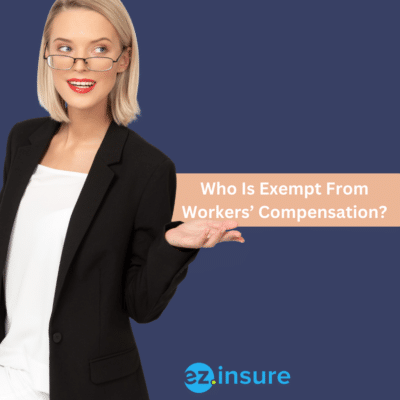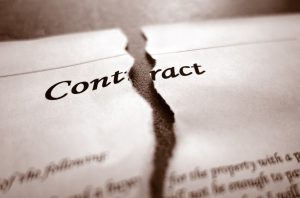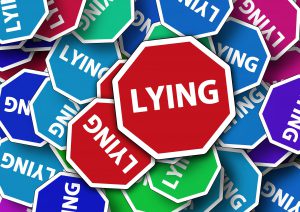
Additionally, if you as the business owner are injured on the job, a workers; compensation policy can help pay for your medical expenses and compensate you for a portion of your lost wages. Your personal health insurance provider may deny your claim if your injury or illness is work-related, leaving you again responsible for these costs. Below we’ll look at the exemption laws in each state, if you’d like more information on the other workers’ compensation laws in your state, check out our state workers’ compensation guides here.
Alabama
Any business with 4 employees or less does not have to carry workers’ compensation in Alabama, whether they are full or part time doesn’t matter. Alabama employers do not need to carry workers’ compensation for farm laborers, domestic laborers, or casual laborers including temporary or part-time employees hired for only an hour or a day.
Alaska
Alaska businesses with one or more employees have to have workers’ compensation coverage unless the Alaska Workers’ Compensation Board has approved the business for self-insurance.
Owners and business executives are exempt if they are:
- Sole owners
- Partners
- LLC owners with at least 10% ownership interest in the company
- Executive officer or municipal, religious, or legally registered nonprofit organizations.
- Executive officers for for-profit corporations with at least 10% ownership.
As for employees who are exempt from coverage:
- Part-time babysitters
- Non-commercial house cleaning personnel
- People who are hired to help a farm with harvest
- Amateur event sports officials
- Entertainers under contract
- Commercial fishers
- Taxi drivers under specific contractual arrangements
- Anyone who has benefits through the Alaska temporary assistance program.
- Professional hockey players and coaches, as long as they are covered under a health insurance plan.
- Some real estate agents
- Anyone defined as a transportation network company driver.
Arizona
There are only 4 exemptions from Arizona’s workers’ compensation. Independent contractors and casual laborers do not need to be covered. As well as any employee who voluntarily chooses to not have workers’ compensation coverage. The only owners who do not have to have coverage are sole owners who have no employees. Beyond that, any business owner with one or more employees needs workers’ compensation coverage.
Arkansas
Employers with fewer than three workers do not have to provide coverage unless the workers are:
- Agricultural farm laborers
- Domestic workers in a private home
- Gardeners, maintenance workers, remodelers who work in a private home
- Employees of non profit, religious, charity, or relief organizations
- Employees of newspapers, magazines, periodical vendose, sellers, or deliverers
- Real estate agents
California
All employers have to carry workers’ compensation insurance for themselves and their employees. The only exceptions to this are sole owners who opt out of coverage for themselves, or employers who have approval to self-insure.
Colorado
Colorado employers with at least one employee have to have workers’ compensation coverage. The exemptions to this are:
- Casual maintenance or repair workers who performed less than $2,000 of work in a single year
- Commission based real estate agents and brokers
- Ski area volunteers
- Part time domestic, maintenance, and repair workers for private homes
- Drivers under a lease agreement with a common or contract carrier
- Federal and railroad employees covered by workers’ compensation under federal laws
- Some corporate officers and LLCs
Connecticut
Connecticut is another state that requires all businesses to carry workers’ compensation insurance with very few exceptions. The only employees that don’t need coverage are domestic workers who work less than 26 hours a week. Sole owners, corporate officers, and partners are allowed to opt out of coverage for themselves but they must have coverage for their employees.
Delaware
Farm laborers and household workers in a private home who earn less than $750 every 3 months do not need workers’ compensation insurance. Other than that every other business owner and employee needs to be covered.
Florida
Employers with four or more employees must carry workers’ compensation insurance, unless one of the following applies:
- Farm laborers, unless there are more than 6 full time employees, or 12 seasonal employees.
- Independent contractors
Georgia
The only exceptions are sole owners and partners in a partnership. Businesses with three or more employees have to carry coverage.
Hawaii
Any employer with one or more full-time, part-time, permanent, or temporary employees has to provide workers’ compensation coverage. Exemptions include:
- Sole owners
- Partners
- Corporate officers
- Domestic workers who earn less than $225 a year
- Some stockholders who own 25% stocks
- All stockholders with at least 50% stocks
- Commission based real estate agents
Idaho
Every employer has to provide coverage. Exemptions to this law include:
- Employees in a domestic household
- Casual employees
- Sole owners
- Partners
- Corporate officers
- Family who works for an employer who is a sole proprietor
- Real estate agents
Illinois
If you have a single employee, even a part-time worker, you have to purchase workers’ compensation insurance. Only sole owners, partners, corporate officers, and real estate agents are excluded.
Indiana
Exemptions for employees and owners for workers’ compensation insurance include:
- Sole owners
- Partners
- Corporate officers
- Independent contractors
- Real estate agents
- Casual employees
- Farm and agricultural employees
- Employees in a domestic household
- Railroad employees
Iowa
Every employer has to provide coverage. Exemptions include:
- Sole owners
- Partners
- Corporate officers
- Independent contractors
- Family employed by a relative for agricultural work
- Casual employees in a domestic household
It’s important to note that some of these exemptions only apply if the employee earns less than $1,500 a year.
Kansas
All Kansas companies must have workers’ compensation insurance with only a few exceptions. Some agricultural workers do not need to be covered. Sole owners, partners, corporate officers, and independent contractors with no employees do not need workers’ compensation insurance.
Kentucky
For Kentucky businesses all employers must provide workers’ compensation insurance unless their employees are:
- Agricultural employees, or agricultural owners
- Less than two domestic employees who work less than 40 hours per week each
- Anyone working in exchange for aid (such as housing or food) instead of money for charity or religious organizations
- Certain religious organizations
Louisiana
Exemptions for workers’ compensation insurance in Louisiana are:
- Employees of private residences
- Employees of private unincorporated farms
- Musicians and performers
- Airplane crews who fly for crop dusting or spraying operations
- Uncompensated officers of board of directors of nonprofit organizations
Maine
Employers with at least one employee have to provide coverage. Exemptions include:
- Sole proprietors, partners, and officers of corporations
- Some domestic employees
- Some agricultural employees
Maryland
Employers with at least one employee have to provide coverage. Exemptions include:
- Sole proprietors
- Partners
- Officers of corporations
- Certain agricultural employees
Massachusetts
All employers must provide coverage. Exemptions include:
- Customers of an LLC
- Partners of a limited liability partnership
- Sole proprietors of an unincorporated business (employees must still be covered) have to carry insurance.
- Domestic service employees working less than 16 hours per week
Michigan
Employers who regularly employ one or more employees for 35 or more hours per week for 13 or more weeks in the 52 weeks prior must provide coverage. Exemptions include:
- Agricultural workers (fewer than three employees working less than 35 hours per week)
- Domestic workers (fewer than three employees working less than 35 hours per week).
Minnesota
All employers must provide coverage. Exemptions include:
- Sole proprietors, partners, and officers of corporations
- Employers subject to federal liability statutes
- Agricultural operations with some limitations
Mississippi
Employers with at least five employees have to provide coverage. Exemptions include:
- Sole proprietors
- Partners
- Officers of corporations
- Employers with five or fewer workers
- Domestic laborers
- Farm laborers
- Independent contractors
Missouri
Employers with at least five employees have to provide coverage. Exemptions include:
- Workers in the railroad, postal, and maritime industries covered by federal laws
- Farm laborers
- Personal servants in a private residence
- Occasional workers performed in a private household.
- Professional real estate agents
- Direct sellers
- Volunteers of an organization exempt from federal income tax
- Non-event-sponsor-employed sports officials or contest workers for interscholastic activity programs or amateur youth programs.
Montana
All employers must provide coverage. Exemptions include:
- Sole proprietors, partners, and officers of corporations
- Domestic or household employees whose typical responsibilities include house cleaning and yard work
- Casual employment
- Only those working for assistance or sustenance
- Officials of amateur athletic competition, such as a timer, referee, umpire, or judge.
- Real estate, securities, and insurance salespeople paid solely on commission with no minimum earnings guarantee
- Direct sellers
- Those who deliver single or multiple newspapers and have acknowledged in writing that they have no insurance coverage.
- Freelance correspondents who submit articles or photographs for publication are compensated for each submission but have not confirmed coverage in writing.
- Barbers and cosmetologists who have contracts with cosmetology salons.
- Petroleum land specialists
- Licensed jockeys participating in a horse race, from the time the jockey reports to the scale room until the jockey is weighed out after the race.
- Licensed trainers, assistant trainers, exercise persons, and pony persons on the premises of a licensed horse race meet.
- Non-Montana residents whose primary duties are not performed outside the state. The employer must adhere to the coverage requirements in the location where the employee resides or works.
- Officers or managers of a private, non-profit irrigation ditch company, water user cooperative, corporation, or organization.
- A minister who is ordained, commissioned, or licensed by a church or religious order.
- Individuals who provide companionship services or respite care to incapacitated individuals. The individual providing services or care must be directly employed by a family or legal guardian.
- Excluding air search and rescue volunteers, volunteer reserve auxiliary law enforcement, and volunteer firefighters, volunteer workers are defined as:
- Professional athletes who compete in contact sports for a team or club
- Personnel of freight brokers and forwarders
- A musician whose performance is governed by a written contract
- a few agricultural employees
Nebraska
Employers with at least one employee have to provide coverage. Exemptions include:
- Federal workers, railroad workers, independent contractors, and the majority of volunteers are exempt
- Domestic servants
- Agricultural laborers
- Sole proprietors, partners, and officers of corporations
Nevada
Employers with at least one employee have to provide coverage. Exemptions include:
- Employment associated with entities engaged in interstate commerce that are not subject to Nevada’s legislative authority
- Employment covered by private disability and death benefit plans comprising compensation payments of equal to or greater amounts than those provided in NRS 616 and in effect for at least one year prior to July 1, 1947.
- Temporary employees insured in another state who are brought into Nevada if extraterritorial coverage provisions are in effect with the other state.
- Casual employment in the construction industry (employment lasting less than 20 days with a total labor cost of less than $500), if the employment is not in the course of the employer’s trade, business, profession, or occupation.
New Hampshire
Employers with at least one employee have to provide coverage. Exemptions include:
- Sole owners
- Limited liability company (LLC) with three or fewer executive officers and no other employees.
New Jersey
Employers with one or more employees have to provide coverage, with the exception of those covered by federal programs.
New Mexico
Employers with at least three employees have to provide coverage. Exemptions include Sole proprietors. However, sole proprietors are counted as employees when determining whether a business employs three or more individuals.
New York
All employers must provide coverage. Exemptions include:
- Volunteers who provide their services to nonprofit organizations without compensation
- Ministers, priests, and rabbis duly ordained, commissioned, or licensed; sextons; Christian Science readers; and sects of religious orders
- Customers of supervised amateur athletic activities operated on a nonprofit basis, provided that such s are not otherwise engaged or employed by any person, firm, or corporation participating in such athletic activity Educators in a nonprofit religious, charitable, or educational institution
- Individuals employed in a nonmanual capacity by or for a religious, charitable, or educational organization.
- Persons receiving charitable aid from a religious or charitable institution who perform work in exchange for such aid, but who are not under an express contract of hire, are considered unpaid volunteers.
- People who are covered for specific types of employment under another workers’ compensation system, such as those employed in certain maritime occupations, interstate railroad employees, federal government employees, and others who are covered by federal workers’ compensation laws.
- The spouse and minor children of a farmer-employer, provided they are not under an express contract of employment.
- Certain foreign government and Native American Nation employees
- Provisions of the New York State General Municipal Law that protect New York City police officers, firefighters, and sanitation workers
- People, including minors, performing yard work or casual chores in and around a single-family, owner-occupied residence or a noncommercial organization’s property.
- Certain real estate salespeople who sign a contract with a broker stating that they are independent contractors are considered independent contractors.
- Certain media sales representatives who sign a contract stating they are independent contractors are considered independent contractors.
- Certain insurance agents or brokers who sign a contract stating they are independent contractors are considered independent contractors.
- Sole proprietors, partners, and certain corporate officers with no additional personnel providing essential business services.
North Carolina
Employers with at least one employee have to provide coverage. Exemptions include:
- Sole proprietors, partners, and officers of corporations
- Some railroad personnel
- Casual employees
- Domestic servants employed directly by the household
- When less than ten full-time, non-seasonal farm laborers are regularly employed by the same employer, they are considered farm laborers.
- employees of the federal government in North Carolina
- Those who sell agricultural products for their producers on commission or for other compensation, provided the product is prepared for sale by the producer.
North Dakota
There are no exceptions in North Dakota. All businesses must have workers’ compensation insurance.
Ohio
All employers must provide coverage. Exemptions include:
- Partnership Limited liability company that operates as a sole proprietor
- LLC serving as a partnership
- Directors of family farm corporations
- Individuals with no employees incorporated as a corporation
- A religious organization’s ordained or associate ministers
Oklahoma
All employers must provide coverage. Exemptions include:
- Independent contractors
- Some agricultural employees
- Certain providers of services administered by the Oklahoma Department of Human Services who are licensed and compensated on a commission-only basis
- Any employee of an employer with five or fewer employees who are all related to the employer by blood or marriage. Any employee of a tax-exempt youth sports league.
- Sole proprietors, partners, and officers of corporations
- Any individual who performs volunteer work and receives no remuneration other than meals, drug or alcohol rehabilitation therapy, transportation, lodging, or reimbursement for incidental expenses is considered a volunteer.
- Owner-operators of tractor-trailer trucks
- Drive-away sole proprietors
Oregon
Employers with at least one employee have to provide coverage. Exemptions include:
- Sole proprietors, partners, and officers of corporations
- Family-owned businesses with no employees in which multiple families are employed.
- leased employees
- Temporary employees
Pennsylvania
Employers with at least one employee have to provide coverage. Exemptions include:
- Federal workers
- Longshoremen
- Railroad employees
- Casual employees
- Some agricultural laborers
- The Workers’ Compensation Act does not apply to domestic workers Sole proprietors, partners, and corporate officers
- Executive officers for whom the Department of Labor and Industry has granted a religious exemption
- Real estate salespeople with a valid license or associate real estate brokers
Rhode Island
Employers with at least one employee has to provide coverage. Exemptions include:
- Sole proprietors
- Partners
- Officers of corporations
- Independent contractors
South Carolina
Employers with four or more workers have to provide coverage. Not a single exception exists.
South Dakota
Unlike most other states, South Dakota employers do not legally have to carry workers’ compensation insurance. To avoid civil lawsuits, however, the state encourages employers to have workers’ compensation coverage.
Tennessee
Employers with at least five employees have to provide coverage. Exemptions include:
- Farm laborers
- Domestic laborers
- Sole proprietors, partners, and officers of corporations
Texas
Except for private employers under contract with the government, Texas employers are not required to carry workers’ compensation insurance.
Utah
Employers with at least one employee are required to provide coverage. Exemptions include:
- Sole proprietors, partners, and officers of corporations
- Independent contractors
Vermont
All employers must provide coverage. Exemptions include:
- Casual employees
- Participants in amateur sports
- Some agriculture employees
- Volunteers
Virginia
Employers with at least three employees are required to provide coverage. Exemptions include sole owners. However, sole owners are counted as employees when determining whether a business employs three or more individuals.
Washington
All employers must provide coverage. Exemptions include:
- Certain executives of public corporations
- a number of independent contractors
- Volunteers
West Virginia
Employers with at least five employees have to provide coverage. Exemptions include:
- Domestic staff
- Casual workers
- Employees of religious institutions Athletes in professional sports
- Employers participating in federal programs
Wisconsin
Employers with at least three employees have to provide coverage. Employers with fewer than three employees who pay wages of at least $500 per calendar quarter must also carry workers’ compensation insurance. Exemptions include some farm laborers.
Wyoming
Employers with three or more workers must provide coverage. Employers with fewer than three workers who pay at least $500 in wages per calendar quarter have to carry workers’ compensation insurance. Exemptions include some farm workers.
Workers’ Compensation Made EZ
Most states require businesses to carry workers’ compensation insurance, which will not only protect your business but also your employees. Keeping your employees safe does not have to be an expensive endeavor for your company. There are numerous ways to promote safety routines and programs, all of which will help you reduce your workers’ compensation costs. If you use the best practices for claims management and follow them in a timely manner, your employees will be able to return to work as soon as they receive medical clearance to do so. Not only will production return to normal, but workers’ compensation costs will get cheaper as well.
Come to EZ for free, instant quotes from one of our agents if you are looking for the best workers’ compensation policy. And if you already have workers’ compensation benefits but are looking for a better deal, we can assist you. Your EZ agent will be familiar with the local laws and able to guide you as you shop around for the best policy at the most affordable price. Enter your zip code in the box above or call us at 877-670-3538 to speak with one of our agents.












